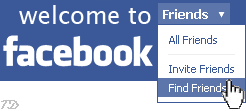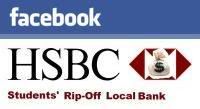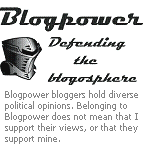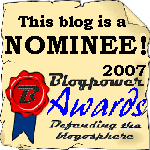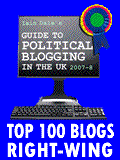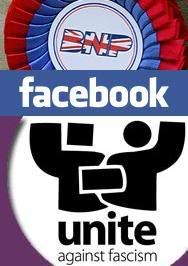 Today I received an email [forwarded on a mailing list that should not be used for this purpose] claiming to have uncovered "KKK propaganda and calls to 'hang golliwogs' on BNP Facebook groups". It links - well, rather it does in a painstakingly indirect way - to a petition to get the BNP off Facebook. The email, also a press release on their website, says:
Today I received an email [forwarded on a mailing list that should not be used for this purpose] claiming to have uncovered "KKK propaganda and calls to 'hang golliwogs' on BNP Facebook groups". It links - well, rather it does in a painstakingly indirect way - to a petition to get the BNP off Facebook. The email, also a press release on their website, says:
Campaign group Unite Against Fascism today exposed how fascist BNP’s groups on social networking site Facebook are being used to spread their message of hate. Parliamentarians have joined hundreds in calling for Facebook to ban BNP groups.
Amongst other instances the investigation has uncovered images of Ku Klux Klan members posing with a sword under the subtitle "Local BNP meeting, blacks welcome". The group’s description calls on people to join to "help them fight evil and win the war of cleansing Britain" and includes a comment on its wall stating "If it aint white it aint right”(sic)...
Facebook has responded to the calls by removing an image from one of the BNP user group that equates Islam with murder. However, this image is still present on the same BNP site which promotes the Ku Klux Klan image.
Another group entitled "vote BNP and save the world" includes a message board which contains material evoking lynchings of black people under the heading "what to do with gollywogs."
Well yes,
one group does have a picture of "Ku Klux Klan members with a sword with the subtitle "Local BNP meeting, blacks welcome"." It also has an "image spelling out I.S.L.A.M. with the "S" standing for slaughter, "A" standing for Arson." In the image, the "I" stands for Intolerance - which is precisely what this group are arguing for. Intolerance of a reprehensible ideology, yes, but still - they have the right to be able to express themselves. I'm not denying that certainly the first image is disgusting, but I don't think that it means that the BNP
as an organisation should be banned from Facebook.
The Facebook
Terms of Use state, under "User Conduct" that
"[Y]ou agree not to use the Service or the Site to:
...
- upload, post, transmit, share, store or otherwise make available any content that we deem to be harmful, threatening, unlawful, defamatory, infringing, abusive, inflammatory, harassing, vulgar, obscene, fraudulent, invasive of privacy or publicity rights, hateful, or racially, ethnically or otherwise objectionable;"
So Facebook can remove the offensive imagery and text. They should do that. But that these are BNP groups does not mean that the BNP
as an organisation should be banned from using this, or any other, social networking site.
They are a legitimate political party. We may find many of their policies and the opinions of many members [which may or may not represent the majority] frankly disgusting, but for as long as they are allowed to stand as a political party, they have the right to make use of these sorts of resources.
To say that they, as an entire organisation, should be banned from Facebook is an extremely dictatorial and excessive overreaction to the problem - and the sort that these people would like to enact against the groups
they hate. The BNP are best combated with reasoned arguments and disdain for their views. Holding a petition to have them banned from an internet site just helps them by polarising opinion, making it either for or against.
Saying that "the BNP’s views pose a direct threat and are offensive to many Facebook users" is utter bullshit - you only come across them if you go looking at their groups - I never had until researching for this post. It's like peering through someone's bedroom window and then complaining to the police that you saw them naked. Anyone who signs the
petition is, frankly, a bit of an idiot. All you are doing is giving the BNP the oxygen of publicity. Let them rot in a dark, dank corner instead.




